
Diseases that develop due to pathogenic organisms are called pathogenic diseases. The term pathogen comes from Greek words “pathos” and “genesis” meaning “causing a disease”. Numerous disease-causing agents such as bacteria, fungi, viruses, prions and others can be responsible for pathogenic diseases. There are many pathogenic diseases but in the following text we will focus on those caused by bacteria.
Development of Pathogenic Disease Caused by BacteriaHumans are hosts to different beneficial bacteria. These helpful bacteria can be found mostly on the human skin and guts. Beneficial bacteria in humans have many functions and one of them is to promote the immune system to fight off pathogenic bacteria.
Diseases caused by bacterial pathogens are affecting people worldwide. Such diseases are contagious. They occur when pathogenic bacteria outnumber beneficial bacteria or when helpful bacteria or the immune system are affected in any way giving an opportunity to bacterial pathogens to invade the body. This is known as opportunistic infection.
Bacterial pathogens can lead to dental decay, food poisoning, anthrax, bacterial pneumonia, bacterial bronchitis and even cancer.
How Do Humans Contract Bacterial Diseases?
Bacterial pathogens can enter the human body via different means. Four main sources of pathogenic bacteria are contaminated food, contaminated soil, contact with infected people and contact with pets and pests.
Raw food like meat, poultry, milk products, eggs and rice are the major source of bacterial pathogens.
Soil rich in pathogenic bacteria can lead to poisoning, infection and gangrene.
Bacterial disease can be contracted also through contact with bodily fluids of infected people. People usually transmit infection by kissing, sharing eating utensils or clothes with others.
Fleas and ticks can carry different bacterial agents thus humans can contract bacterial diseases through contact with pets infected by these parasites. Flea and tick bites are the means by which bacteria can be spread to humans. Finally, pests such as cockroaches, rats and mice are also carriers of pathogenic bacteria.
Pathogenesis of Disease
Development of disease, from its first appearance to the end stage is known as pathogenesis of disease. It refers to the origin of the disease, the progressive changes and the effects of the disease that take place within the body. Pathogenesis of disease is vital for doctors and researches because it enables them to gain the insight in the cause, symptoms, epidemiology, diagnosis and treatment of the disease.
List of Pathogenic Diseases Caused by Bacteria
Here is a list of common diseases due to pathogenic bacteria:Food poisoning (Escherichia Coli)Strep throat (Streptococcus pyrogens)Tuberculosis (Mycobacterium tuberculosis)Cholera (Vibrio cholera)Syphilis (Treponema pallidum)Gonorrhea (Neisseria gonorrheae)Antrax (Bacillus antracis)Legionnaire’s disease (Legionella pneumoniae)Leprosy (Mycobacterium leprae)Tetanus (Yersinia pestis)Pneumonia (Streptococcus pneumoniae)Influenza (Haemophilus ingluenzae)Septicimia (Pseudomonas aeruginosa)Respiratory tract infections (Moraxella catarrhalis)Whooping cough (Bordetella pertusis)Lyme disease (Borrelia burgdorferi)Gangrene (Clostridum perfringens)Tularemia (Francisella tularensis)





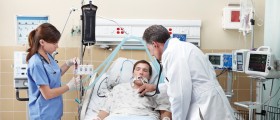
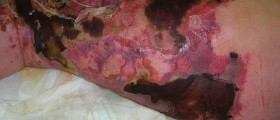





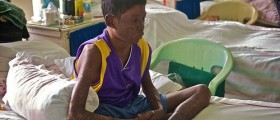

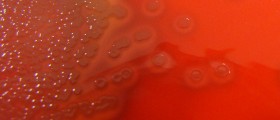

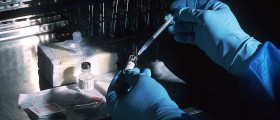
Your thoughts on this
Loading...